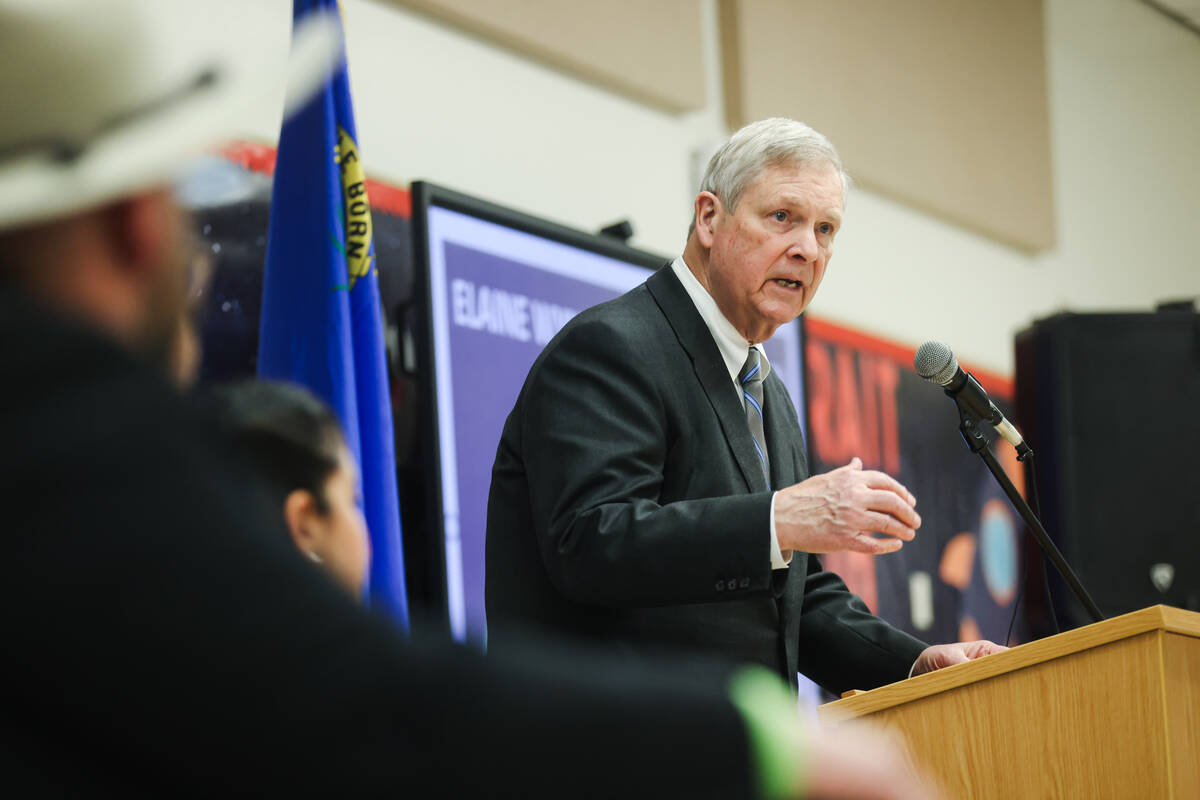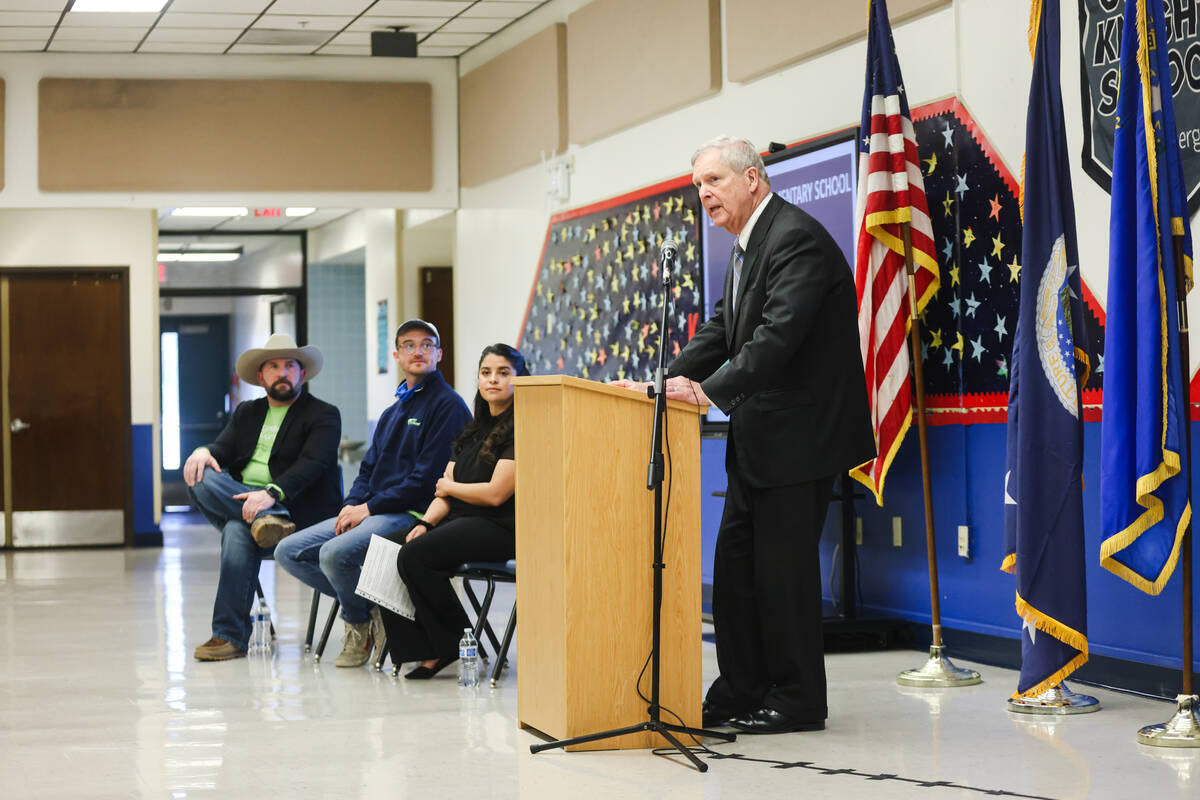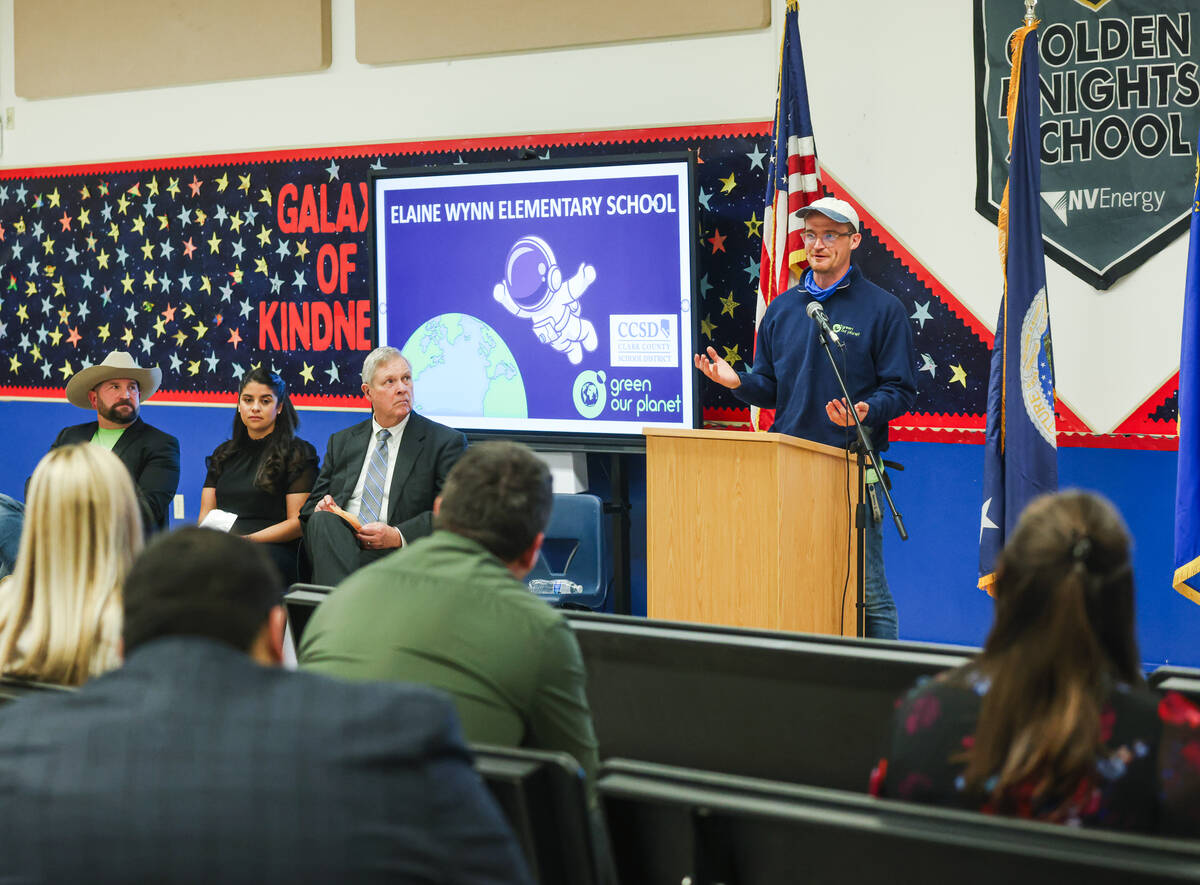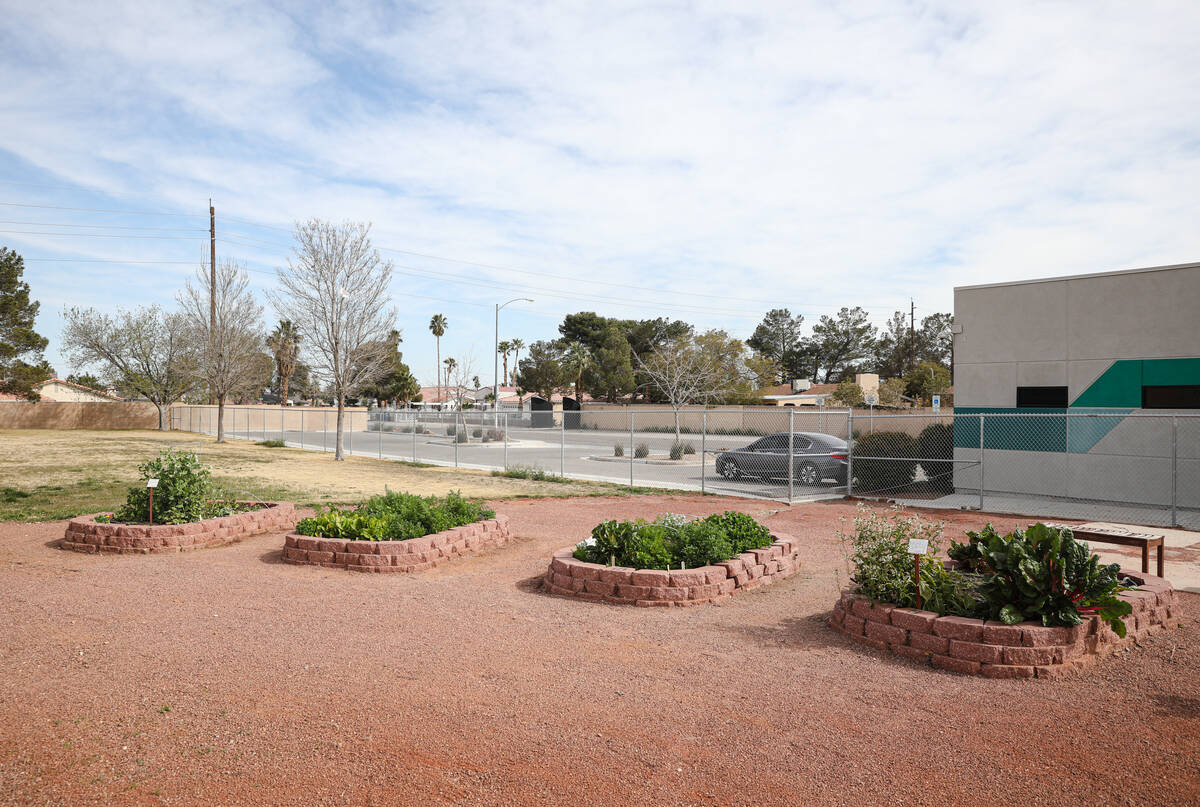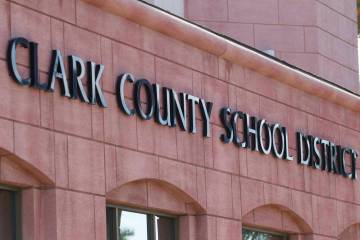‘Pretty sophisticated’: Las Vegas school’s garden impresses Agriculture chief
U.S. Secretary of Agriculture Thomas Vilsack highlighted child nutrition initiatives during a Tuesday visit to a Las Vegas elementary school garden.
A press conference inside Wynn Elementary School’s cafeteria coincided with the Clark County School District’s spring break, so students and employees weren’t on campus.
Wynn Elementary’s garden provides a great learning experience for students, Vilsack said.
“There isn’t a single discipline in this school that you can’t tie to that garden,” he said.
The Clark County School District — the nation’s fifth-largest district with nearly 300,000 students — serves about 240,000 meals each day, including breakfast, lunch and supper.
Vilsack said that what surprised him about the garden at Wynn Elementary is the “range of youngsters” who are engaged with it.
He said he typically goes to junior high or even high schools that operate a garden but he noted that at Wynn, children as young as kindergartners participate.
“What struck me about this was this is pretty sophisticated stuff that they’re learning,” he said, citing the classroom charts detailing the structure of seeds.
Other speakers during the press conference included representatives from Green Our Planet, a Las Vegas-based nonprofit that operates school garden and hydroponics programs nationwide.
The main goal is to teach children by using sustainable farming practices and different techniques for the types of fruits and vegetables that grow locally, said Joseph Patchett, a farmer for Green Our Planet in the Las Vegas area.
Students also learn about how to ensure proper nutrients for plants, he said.
Patchett, who has 20 nieces and nephews, said it’s a cool to see how much children are interested in the insects around the garden.
Cultivating values
Melissa Taitano, a kindergarten through fifth-grade health and garden teacher at Wynn Elementary, teaches the school’s 724 students.
The school’s curriculum includes sustainable farming techniques such as hydroponics and soon, aquaponics, Taitano said.
Lessons related to the garden span a number of subject areas, including nutrition, sustainability, art, engineering and math, she said.
Students also experience the joys of harvesting fresh fruits and vegetables from the garden, as well as creating delicious and nutritious meals, Taitano said.
Students tend to the garden and attend local farmers markets sponsored by Green Our Planet, she said, which teaches them about marketing, business and financial literacy.
“But our biggest success, though, has been being able to cultivate in our students the values of responsibility, empathy and kindness, shaping them into successful citizens of tomorrow,” Taitano said.
During the COVID-19 pandemic, federal American Rescue Plan funding provided resources under a USDA “farm to school” grant program.
Money was distributed by the state to Green Our Planet, which used resources at Wynn Elementary “for the amazing program that you see here today” and at other schools, Vilsack said.
Through the program, students learn “so many great life lessons” and there are also opportunities for “significant nutrition education,” he said.
One of the challenges at USDA is “doing all we can to ensure that youngsters are well fed,” he said.
Vilsack said the summer EBT program — which starts this summer — will provide parents of school-age students who qualify for free or reduced-price lunches with $40 monthly for three summer months, a total of $120, on a card to use for groceries.
He said he’s excited for the impact it could have on roughly 350,000 children in Nevada. He also said it equates to roughly $42 million in support, which will have an economic impact.
Vilsack said that the federal agency has partnered with the state in a number of different initiatives, including a equipment grant program that provided funding at 41 locations across the state for items such as milk coolers, ovens, refrigerators and freezers so that schools can be in a position to do a better job of providing from scratch or more nutritious meals.
The USDA is also excited by Nevada’s willingness to participate in a variety of summer feeding programs, he said.
In addition to congregate meal sites, the state took advantage of a non-congregate meal opportunity in rural areas, which are now being served with more flexibility, he said.
Investments in tribal communities
Also on Tuesday in Las Vegas, Vilsack announced nearly $58 million in USDA funding for tribal communities in Nevada, Oklahoma and South Dakota.
That includes the Yomba Shoshone Tribe that’s headquartered in Austin, a town in central Nevada that’s part of the USDA’s Rural Partners Network.
The tribe will use a $772,000 grant for improvements to water infrastructure.
Vilsack made the announcement at Caesars Palace during the Reservation Economic Summit, organized by the National Center for American Indian Enterprise Development.
Contact Julie Wootton-Greener at jgreener@reviewjournal.com. Follow @julieswootton on X.



